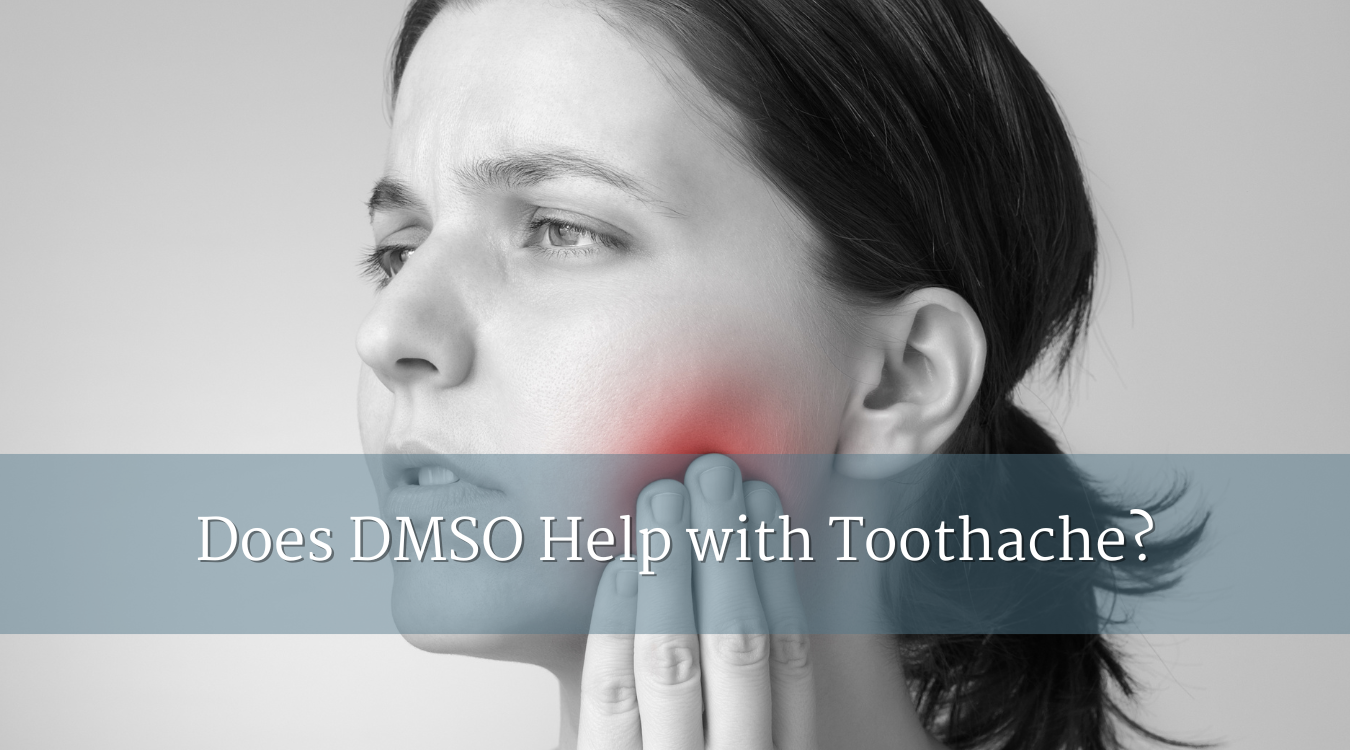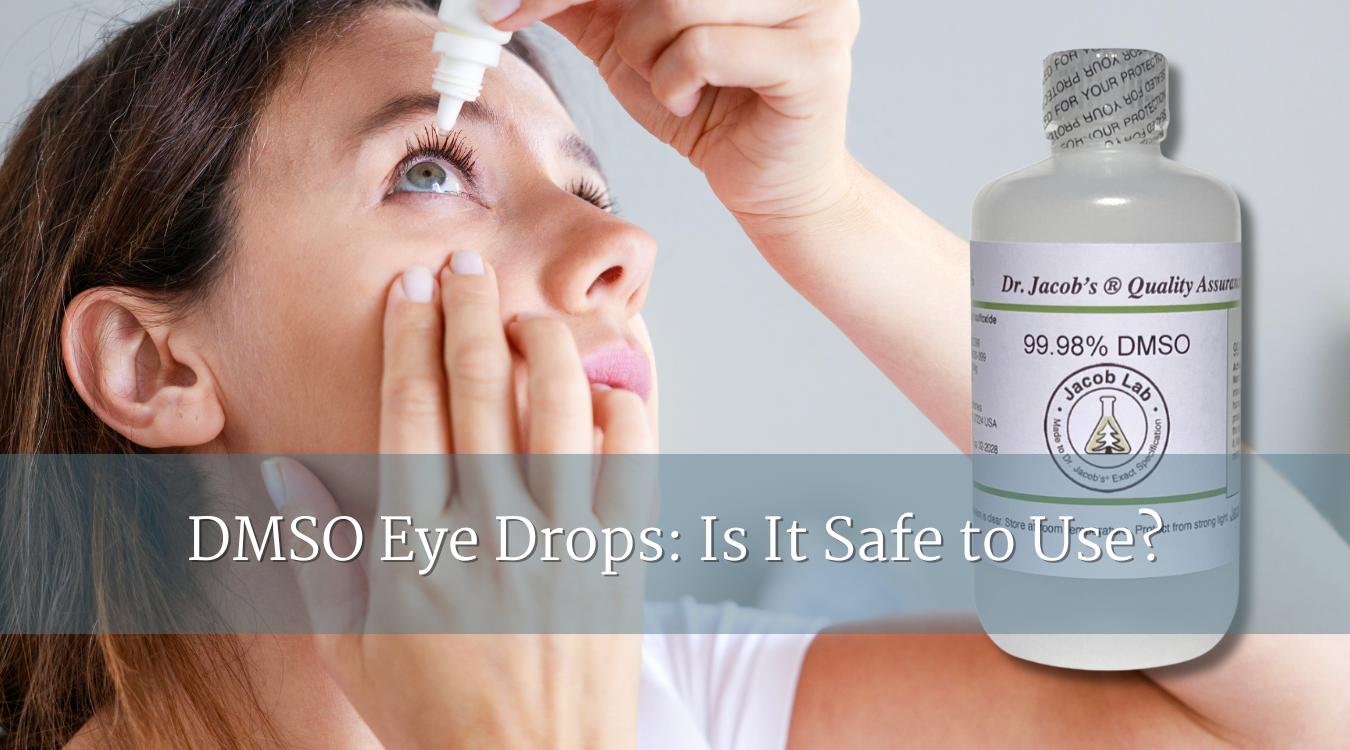
Few things are as distracting as a toothache. That deep, throbbing pain can make it hard to eat, sleep, or even think clearly. Most people reach for painkillers, clove oil, or book an urgent dental appointment. But some are now asking a different question: could DMSO (dimethyl sulfoxide) help with tooth pain?
DMSO is best known for its ability to penetrate deeply into tissue and reduce inflammation. While it’s not a standard dental treatment, its unique properties make it an intriguing option worth exploring — especially for those seeking natural support while waiting for professional care.
The Science: DMSO and Oral Pain
DMSO’s potential for dental use lies in three main actions:
-
Anti-inflammatory effects: Toothaches are often caused by inflammation — in the pulp, gums, or surrounding tissues. DMSO helps calm these responses.
-
Analgesic properties: Research suggests DMSO interacts with nerve pathways, potentially reducing the intensity of pain signals.
-
Penetration ability: Unlike most natural remedies, DMSO carries itself and other compounds deep into tissues, possibly reaching the nerve root more effectively.
There have been small-scale experiments and anecdotal reports of DMSO being used in dentistry, particularly for gum inflammation and post-surgical recovery. However, robust human trials are still limited, meaning we must view this option cautiously.
🌿 A Holistic Perspective: TCM and Dental Pain
In Traditional Chinese Medicine (TCM), toothache is often seen as a manifestation of “stomach heat” or “wind-fire” rising to the mouth. This imbalance causes inflammation, swelling, and pain in the gums and teeth.
TCM treatment typically includes:
-
Cooling herbs (like Huang Lian / Coptis) to clear heat.
-
Acupuncture points along the Stomach and Large Intestine meridians to ease pain.
-
Topical rinses or herbal pastes to soothe inflamed gums.
From this lens, DMSO mirrors the “cooling and moving” approach of TCM — reducing inflammation, easing stagnation, and helping restore balance in the oral tissues.
🧴 How People Experiment with DMSO for Toothache
While not recommended as a first-line dental treatment, here’s how some individuals use DMSO cautiously for temporary relief:
-
Diluted mouth rinse (never swallowed): A few drops of diluted DMSO in water, swished gently, then spat out.
-
Topical gum application: Applying a highly diluted DMSO solution on a cotton ball, held against sore gums.
-
Combining with natural agents: Some mix DMSO with clove oil or aloe vera to enhance soothing effects.
💡 Important: DMSO carries whatever it touches into the bloodstream. This means only safe, pure substances should ever be used alongside it.
⚠️ Safety and Cautions
-
Not a substitute for dental care: If you have a toothache, it’s vital to see a dentist. Tooth infections can spread quickly and become serious.
-
Always use pharmaceutical-grade DMSO.
-
Avoid swallowing DMSO or applying to large oral areas — the mucous membranes absorb rapidly.
-
Some people may experience gum irritation or dryness. Always start with a patch test.
Think of DMSO as a possible bridge — something that may offer temporary relief until proper dental treatment is available.
✨ The Bigger Picture
A toothache is the body’s way of saying something needs attention. While DMSO may help calm pain and reduce inflammation, the true solution often lies in addressing the underlying cause — whether that’s a cavity, gum infection, or jaw tension.
As a nutritionist and TCM practitioner, I’d also encourage supporting dental health from within: reduce refined sugars, nourish the gums with vitamin C-rich foods, and strengthen teeth with minerals like calcium and magnesium. Combined with regular dental check-ups, these steps build resilience long term.
🔗 Where to Learn More
-
Related: DMSO for Pain Relief
-
Foundation: What is DMSO and How Does It Work?




 DMSO and Nerve Pain: What the Research Shows
DMSO and Nerve Pain: What the Research Shows
 DMSO Eye Drops: Is It Safe to Use?
DMSO Eye Drops: Is It Safe to Use?












.webp)
